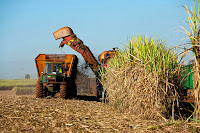Brazilian expert says developing countries must also play their part in cutting emissions if the world is to avoid dangerous climate change.
The developing world’s most polluting nations must abandon the decades-old rhetoric that blames rich countries for climate change and share responsibility for reducing emissions to avoid dangerous overheating, according to Brazil’s best-known scientist.
José Goldemberg, who took office as president of the São Paulo Research Foundation (FAPESP) this month, named Brazil, India and Indonesia − which account for 14% of global emissions − as the three key developing countries that need to abandon an outdated vision of development and use more energy-efficient technologies.
“Without these countries – which were exempt from reducing their emissions by the Kyoto Protocol – making significant efforts, it will be impossible to avoid a global warming of 2°C by 2100, a value that scientists consider as the maximum tolerable to prevent more dramatic climate change than those already taking place,” he said.
Goldemberg, a nuclear physicist and alternative energy expert, said on taking office that it was time for Brazilian scientists to play a leadership role in society and shake off the “ivory tower” approach that prevents academics engaging with the outside world.
Danger threshold
In an open letter to delegates attending the Paris negotiations in December, which are aimed at reaching a global agreement to keep temperatures below the 2°C danger threshold, he called for a new approach from the developing world.
“The United States, China and the European Union, whose emissions account for about 45% of the [world] total have announced ambitious and quantifiable goals.
“Russia and Japan contribute to 7%. The remaining 48% of emissions originate from more than 150 other countries whose individual contributions are less than 1%, with the exception of India, Brazil and Indonesia, who represent 14%.
“Several developing countries have argued that reducing carbon emissions will seriously affect their development, and that the continued use of fossil fuels at low prices is still the best option available to them.
“This is an outdated vision of development. It was valid during the 19th and 20th centuries, when countries industrialized, but it was precisely the indiscriminate use of fossil fuels that has led to the serious pollution problems we are facing today.”
He held up China as a country that has embraced more energy-efficient technologies and renewable energy sources as a new avenue for sustainable development. It had enabled China to announce that, from 2030, it will reduce its coal consumption – and, consequently, greenhouse gas emissions.
Goldemberg then launched into an attack on his own country’s failure to capitalize on its own success in producing ethanol from sugar cane − “an excellent substitute for gasoline”.
He said: “Ethanol is non-polluting, unlike gasoline, and is renewable because cane is a crop that grows every year. It’s like solar energy transformed into a liquid.”
Read more at All Nations Must Share Blame or Lose Climate Battle

No comments:
Post a Comment